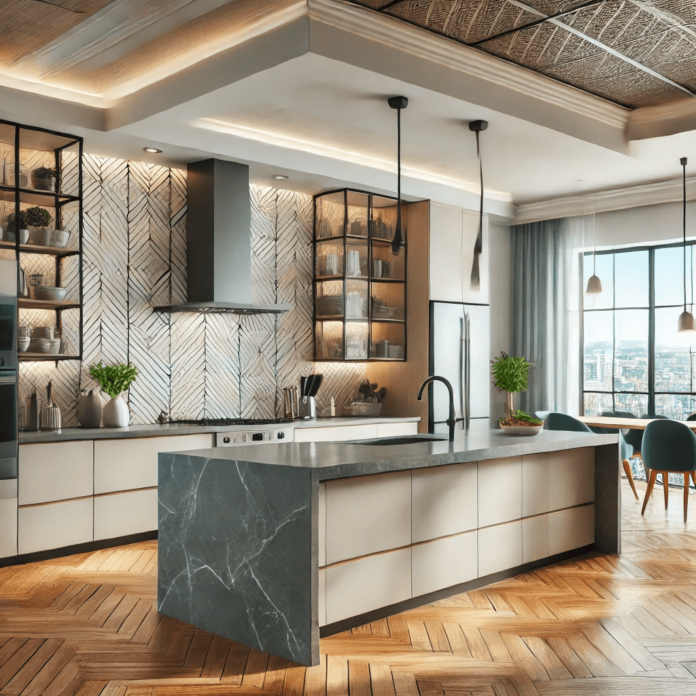Introduction
- Why Setting a Budget is Crucial
- Assessing Your Kitchen Remodel Goals
- Understanding the Costs of Kitchen Remodeling
- Factors That Affect Remodeling Costs
- Setting a Realistic Budget
- Saving Money Without Compromising Quality
- Common Budgeting Mistakes to Avoid
- Financing Options for Kitchen Remodels
- Case Study: A Budget Kitchen Remodel
- Tools and Resources for Budget Planning
- How to Plan Your Kitchen Remodel Budget Effectively
- Conclusion
- Questions:
Creating a kitchen remodel budget is essential for managing expenses and achieving the kitchen of your dreams. From understanding the cost of a kitchen remodel to prioritizing your must-haves, effective budgeting ensures your project stays on track. Whether you’re planning a full renovation or small updates, knowing how to allocate funds for appliances, cabinets, and labor is key to avoiding overspending. This guide will walk you through the steps of budgeting for a kitchen remodel, helping you balance costs and achieve a space that’s both functional and stylish.
Why Setting a Budget is Crucial
A budget acts as a roadmap, helping you navigate the remodeling process without overspending. It allows you to balance your priorities and manage your expectations, ensuring that the finished kitchen aligns with your vision and financial limits.
Assessing Your Kitchen Remodel Goals
Start by clarifying why you’re remodeling. Are you aiming for a modernized look, improved functionality, or both? Identify the essentials (e.g., more storage, better lighting) and separate them from luxuries (e.g., high-end appliances, premium countertops).Focus on prioritizing your remodeling goals to ensure funds are allocated efficiently and effectively.
Understanding the Costs of Kitchen Remodeling
The costs of a kitchen remodel can vary widely depending on the scope and scale. Here’s a typical cost breakdown:
- Cabinets: 30%-40% of the budget.
- Labor: 20%-30%.
- Appliances: 15%-20%.
- Countertops and flooring: 10%-15%.
- Lighting and fixtures: 5%-10%.
Knowing these percentages can help you plan realistically and allocate funds accordingly.
Factors That Affect Remodeling Costs
Several factors influence the overall cost of a remodel, including:
- Kitchen Size: Larger kitchens demand additional materials and increased labor, impacting the overall remodeling cost.
- Materials: Opting for custom cabinets and natural stone countertops will cost more than stock cabinets and laminate.
- Scope of Work: A full remodel will cost significantly more than updating a few elements.
- Location: Remodeling costs vary by region, with urban areas often being pricier.
Setting a Realistic Budget
- Research local remodeling costs to set a baseline.
- Use online calculators to get an estimate of material and labor expenses.
- Include a contingency fund of at least 10%-15% for unexpected issues, such as plumbing repairs or structural updates.
Saving Money Without Compromising Quality
Even on a tight budget, you can create a stunning kitchen by:
- Reusing Materials: Repurpose existing cabinets by refinishing them instead of replacing them.
- Selecting Budget-Friendly Alternatives: Opt for quartz instead of marble or semi-custom cabinets instead of custom-built ones.
- DIY Efforts: Handle simpler tasks like painting or installing cabinet hardware yourself.
Common Budgeting Mistakes to Avoid
Many homeowners underestimate hidden costs, such as permits or delivery fees. Don’t overlook small expenses like cabinet handles or backsplash tiles, as they can add up quickly. Invest time in thorough research to make informed choices and avoid expensive mistakes.
Financing Options for Kitchen Remodels
If your savings aren’t enough to cover the remodel, consider these financing options:
- Home Equity Loans: Ideal for larger remodels, with lower interest rates.
- Personal Loans: Quick to secure, but with higher rates.
- Credit Cards: Suitable for smaller expenses but use them strategically to avoid high interest.
Case Study: A Budget Kitchen Remodel
With a $20,000 budget, a couple transformed their outdated kitchen into a modern, functional space, prioritizing cost-effective materials and design.
- Cabinets: $6,000 (refaced existing ones).
- Appliances: $4,000 (energy-efficient models).
- Countertops: $3,000 (engineered quartz).
- Labor and Miscellaneous: $7,000 (including painting and plumbing updates).
The result was a modern, functional kitchen completed within budget.
Tools and Resources for Budget Planning
Simplify your planning with these resources:
- Budget Calculators: Help estimate costs.
- Project Management Apps: Keep track of expenses and deadlines.
- Spreadsheets: Organize and allocate funds for every aspect of the remodel.
How to Plan Your Kitchen Remodel Budget Effectively

Creating a realistic kitchen remodel budget lays the groundwork for a smooth and successful renovation. A well-thought-out plan ensures you allocate resources effectively, avoid unexpected costs, and achieve the kitchen you envision without financial stress.
Steps to Plan Your Budget:
Determine Your Budget Range:
Assess how much you’re willing to spend based on your financial situation and goals. For most homeowners, kitchen remodels can range between $15,000 and $50,000 depending on the scope.
Allocate Costs to Key Areas:
- Cabinets: Cabinets often represent the largest expense in a kitchen remodel, typically consuming 30–40% of the total budget.
- Appliances: Allocate 15–20% for new or upgraded appliances.
- Labor Costs: Expect to spend 20–25% on hiring professionals for installation and other tasks.
Plan for Unforeseen Expenses:
Always set aside 10–15% of your budget for unexpected costs, such as structural repairs or material price increases.
Conclusion
Establishing a clear budget for your kitchen remodel lays the groundwork for a successful and well-executed renovation. By understanding your goals, prioritizing needs, and accounting for unexpected costs, you can create a space that’s both beautiful and functional without overspending. Start your planning today to turn your dream kitchen into a reality.
Questions:
What Factors Should You Consider When Setting a Kitchen Remodel Budget?
When planning your kitchen remodel budget, consider these key factors:
- Size of the Kitchen: Larger kitchens often demand more materials and labor, leading to higher renovation costs due to their increased size and complexity.
- Scope of Work: Minor updates cost less than a full-scale remodel with layout changes or structural modifications.
- Material Choices: Premium materials like quartz countertops or custom cabinetry can significantly impact your budget.
What are some effective strategies to save money on your kitchen remodel without compromising on quality or style?
To save on your kitchen remodel budget, follow these tips:
- Reuse What You Can: Refurbish cabinets instead of replacing them.
- Shop Sales: Seek out discounts and special offers on appliances and materials to stretch your renovation budget further.
- DIY Where Possible: Take on simpler tasks like painting to cut labor costs.
Do you really need a professional for your kitchen remodel, or can you tackle it yourself to save costs?
While DIY can save money, hiring a professional is often a wise investment, especially for complex tasks like plumbing, electrical work, or structural changes. A professional ensures the project is done correctly and within your kitchen remodel budget, avoiding costly mistakes.














